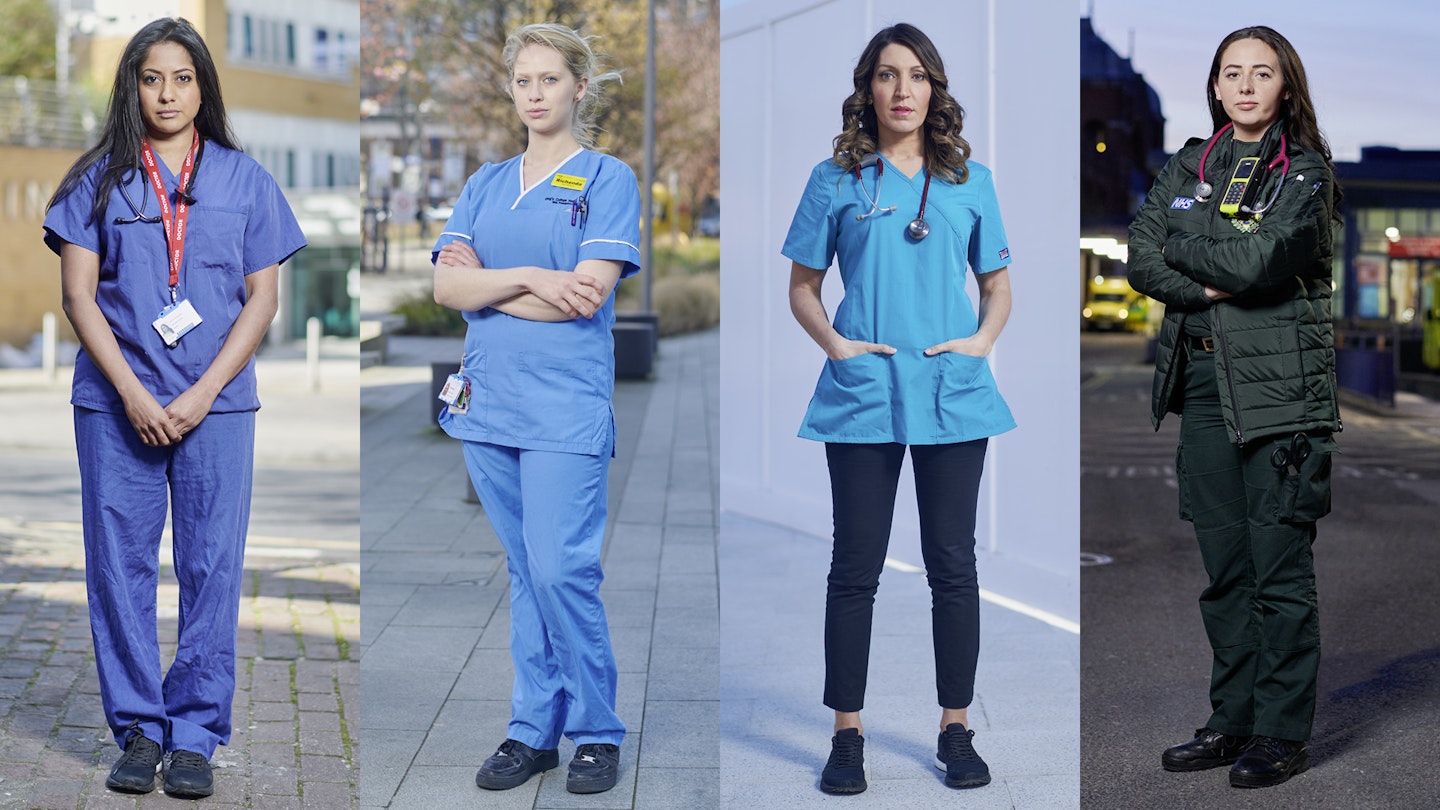As the coronavirus crisis worsens, many heroes have emerged, from the people on minimum wages working in supermarkets, to the delivery drivers and teachers still going into schools to care for key workers’ children. But none are more exposed than the NHS workers treating Covid-19 patients, risking exposure to the disease on a daily basis. One doctor described those currently working for the NHS as ‘cannon fodder’, while, in Italy, at least 37 doctors have already died. Over here, countless NHS workers are now isolating themselves from their own families in order to continue with their jobs, and retired doctors and nurses are returning to work. We speak to four healthcare workers about how it feels to fight a pandemic from the frontline. And they all have one simple message for us all: please stay at home to help us do our jobs...
Janitha Gowribalan, 35, is an anaesthetist and intensive care doctor at Whittington Hospital, north London.
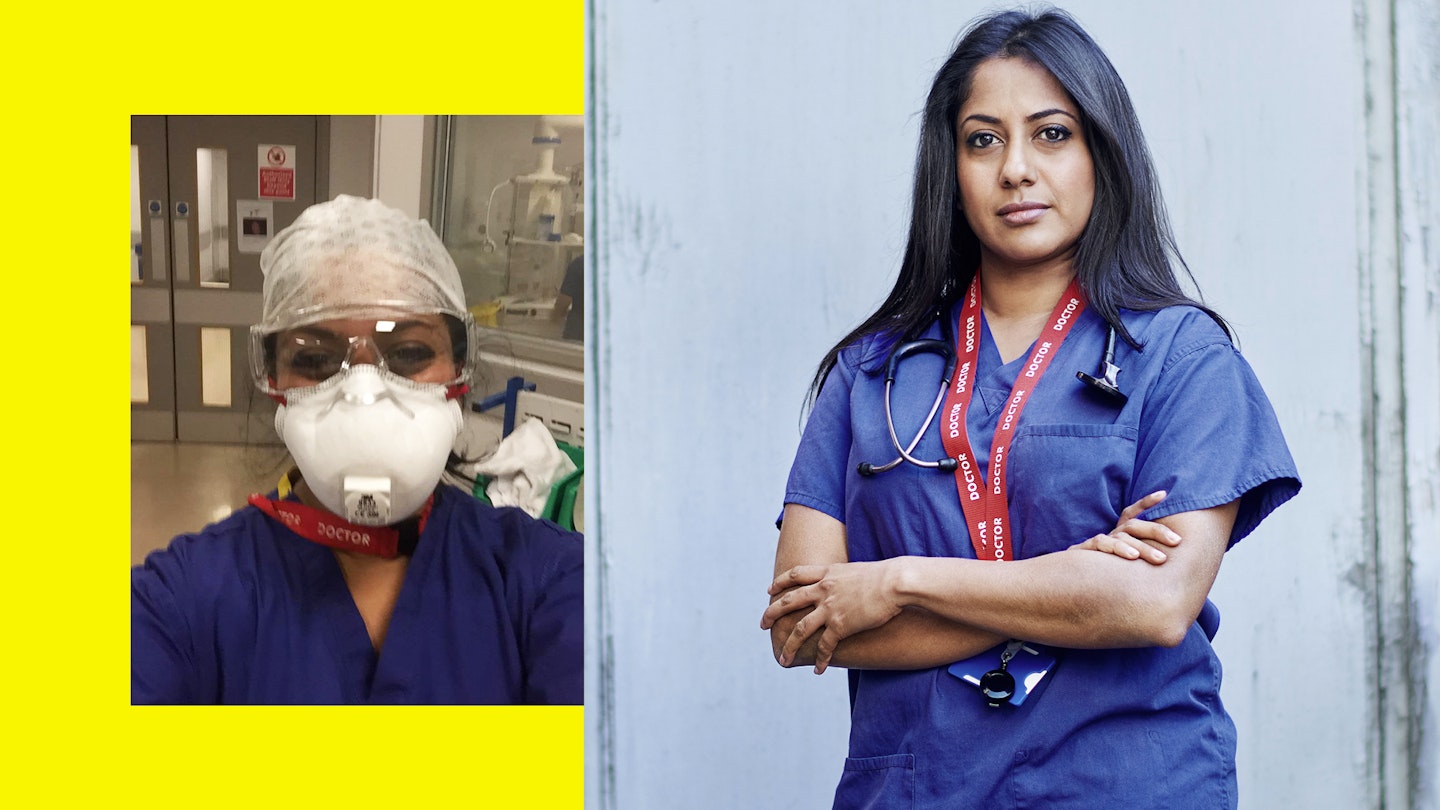
The bus on the way into my night shift is empty. The knock-on effect of what I’ve been seeing in the hospital wards is playing out on the streets – a couple of people in facemasks but, mostly, no one is out any more. I get in at 7.45pm and see the number of Covid-19 cases has dramatically increased in the last two days. We will feel the strain very soon.
First, I must attend to a man in his fifties with underlying health conditions, who badly needs our help. He’s struggling to breathe, so we have to quickly make lifesaving, unavoidable decisions to induce a coma and place him on a ventilator. He’s frightened and asking for us to ring his wife and children. He’s struggling to speak through his tight-fitted mask but, if he takes it off, his oxygen levels will plummet. It’s upsetting telling him it’s not possible for us to call his family now. I think about how terrified I would feel if I couldn’t speak to my parents in his position. We have to act fast as his oxygen levels dramatically fall when we induce the coma – this is normal and we expect it, but it still feels frightening. If it falls too low, a person can go into respiratory or cardiac arrest.
There's a sense of uncertainty – we're dealing with something we don't know about.
Everyone has noticed how much busier it’s become: on my ICU ward there are a significant number of Covid-19 patients and many more in the rest of the hospital. There’s a sense of uncertainty: we’re trained for this, but as it is a new virus, we’re dealing with something we don’t yet really know about.
I worry about what will happen if this continues and how we’ll cope. We have put more staff on the wards, but I worry, too, about how long it takes to put on our protective clothing to treat these patients. All the equipment we need is available, but it can take a team 20 minutes to just get on the gowns, hats, gloves, goggles and masks.
I wouldn’t call myself a hero, but I take a lot of pride in what I do and know how important it is. What is even more vital is that the public observes social distancing – where you stay at home unless absolutely necessary. We know it can dramatically reduce the spread of infection and we’re worried we can’t handle much more. I live with another doctor and we’ve made a contingency plan that if one of us shows symptoms, we will isolate at home while the other one moves out to a hotel provided by the NHS.
I finish my shift at 8am and head home, exhausted, thinking about the man I’ve left in a coma and his family. I hope he will be OK, but the truth is, none of us knows. On my way out I walk past an old building still standing in the grounds here. It reminds me that Whittington Hospital used to look after smallpox patients during the epidemic in the 1800s. It feels like a powerful reminder that we’ve survived this before, and we will get through it again.
To support Whittington Hospital’s fundraising page, click here.
Dr Rosena Allin-Khan, Labour MP for Tooting, and an A&E doctor, says her decision to return to the frontline of healthcare felt instinctive when the crisis broke. She’s juggling hospital shifts alongside her work as a full-time MP.
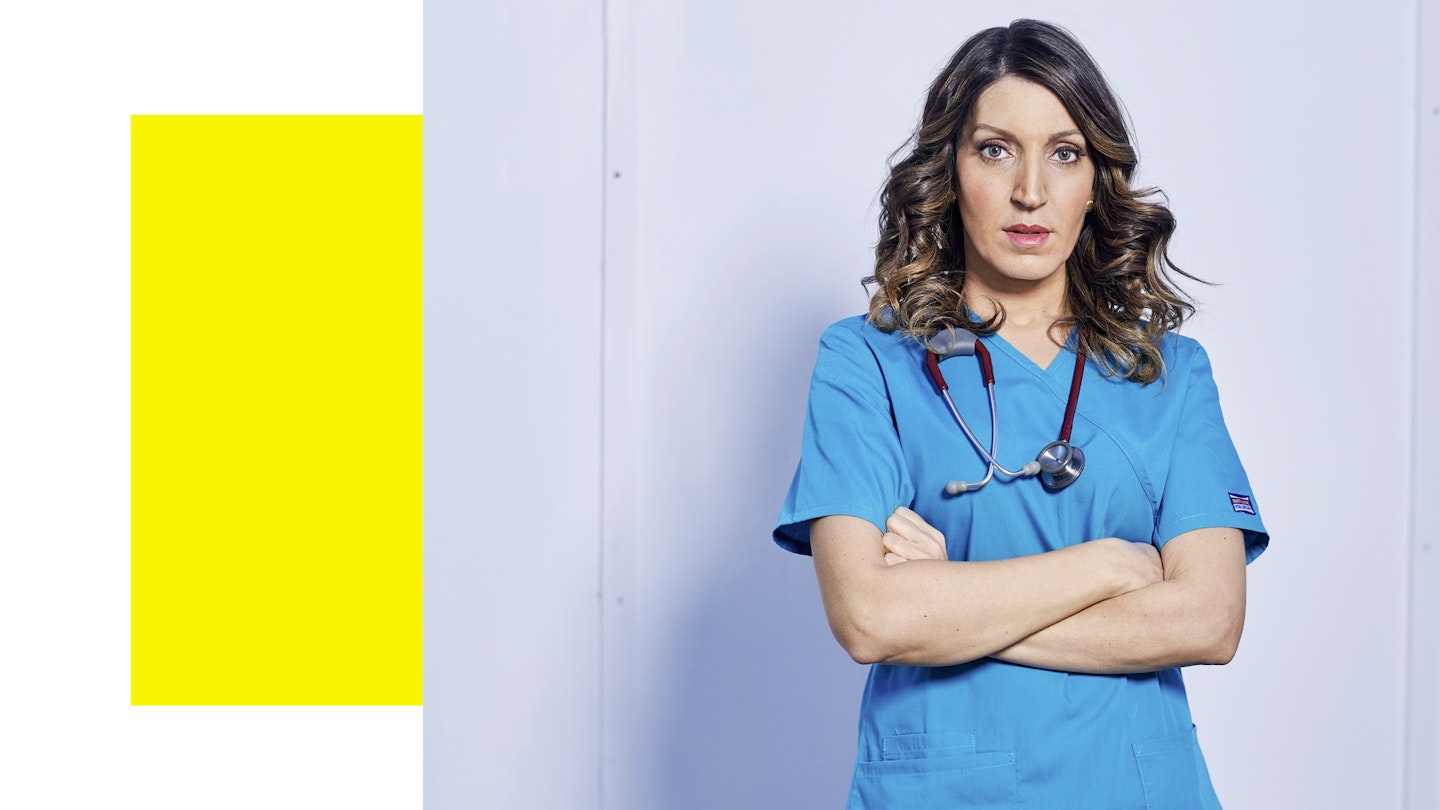
A lot of people are hearing that coronavirus is only dangerous if you’re old or have underlying health conditions, but during the last couple of weeks I’ve seen a previously healthy 33-year-old man and a 42-year-old woman brought into the hospital where I work, fighting for their lives.
More and more patients are arriving severely breathless and terrified. They can’t even have relatives by their side because the virus is so contagious. One of the hardest things is having to tell loved ones to say goodbye at the door to A&E, because they could risk their own life by holding their partner or parent’s hand. The patient could be finding it so hard to breathe that we have no choice but to rush them off, put them to sleep and hook them up to a ventilator to breathe for them. For some, the ventilators save their life. Others, we’ve had to make the devastating phone call to tell the family their loved one, who might have been fine a couple of weeks ago, has died.
I'm terrified of spreading the infection to the people I love.
The coronavirus death rate in this country is going up by the day and we – the NHS workers – are worried. There’s a huge sense of sadness and trepidation among us all. Colleagues are messaging me at 2am saying their minds are whizzing and they can’t sleep. On my way home from the hospital, I call ahead to tell my family not to let my two little girls, who are five and six, run up to hug me at the door. Before I can be with them, I have to shower and wash my clothes. All the time I’m terrified of spreading the infection to the people I love.
Staff up and down the country are also upset there isn’t enough personal protective equipment (PPE) to keep everyone on the frontline safe. The moment when healthcare workers don’t have time for a break, and have to make tough decisions about who lives and who dies because there aren’t enough ventilators, feels close.
Prime Minister Boris Johnson’s lockdown should have come earlier. We had the benefit of being able to see what has already happened elsewhere. Long before now, we should have been testing more people, contact tracing, isolating and putting in strict social-distancing measures.
We all have a responsibility to take care and stay at home now. The only way you can help the NHS is by doing this. We’re sacrificing our time, our families and putting ourselves in danger. We do it, gladly. Please help us help you.
Richenda Browne, 29, is a senior staff nurse in the emergency department at King’s College Hospital NHS Foundation Trust.
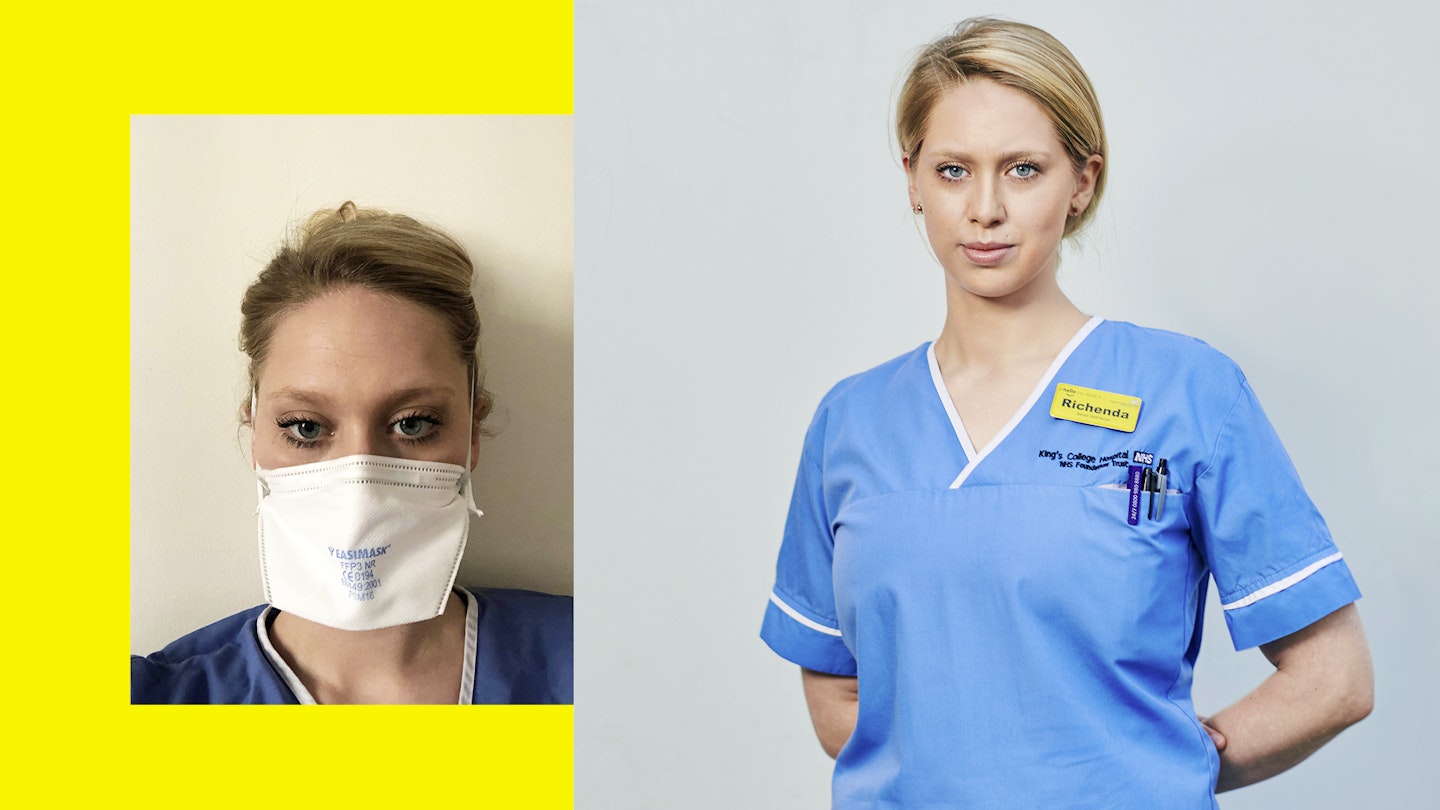
One of my roles involves liaising with families during their darkest hours of need. But everything I know about being there for people feels different because of how infectious coronavirus is. Last week, when a woman distraught with grief came to the hospital and told me she was desperate to see her husband, I had to be blunt about the risks to her health. She told me her son had begged her not to come but her husband was dying and she had to be by his side. Helping families who can’t be together in these moments is upsetting. I stay strong for my patients at work, but at home, on rare days off, I process everything. We need to think of innovative ways for people to communicate with patients in isolation, such as using video calls to say goodbye. I’m also finding it challenging to show empathy through protective equipment and masks – I rely so heavily on my facial expressions.
What’s really worrying is how hospitals are running low on protective equipment. The Government urgently needs to prioritise getting more. Healthcare workers are the most precious commodity the country has right now. To protect them, I’ve stopped seeing family and friends and can’t bear to think how long this might go on for – I’m trying to treat it like a humanitarian mission.
The government urgently needs to prioritise getting us more protective equipment.
We’re discovering new things every day about this novel disease: the majority of patients with symptoms have been over 40; for some reason, more people with symptoms seem to need emergency medical treatment in the afternoons. We’ve also been surprised how quickly some people’s breathing seems to deteriorate. After having symptoms for five to seven days, those who are going to develop severe illness can quickly go downhill.
So many people in the NHS are doing incredible things to help and support each other, but it’s not just the clinicians; the cleaners and all NHS staff are working flat out to try and keep everyone safe, day and night. The thought of staying home for months might seem boring to you, but patience is a word we should all be using right now. All I hope is that this serves as a reality check for the world to look out for each other, show more compassion and not take the NHS for granted.
Sarah Blanchard, 27, is a paramedic in Essex.
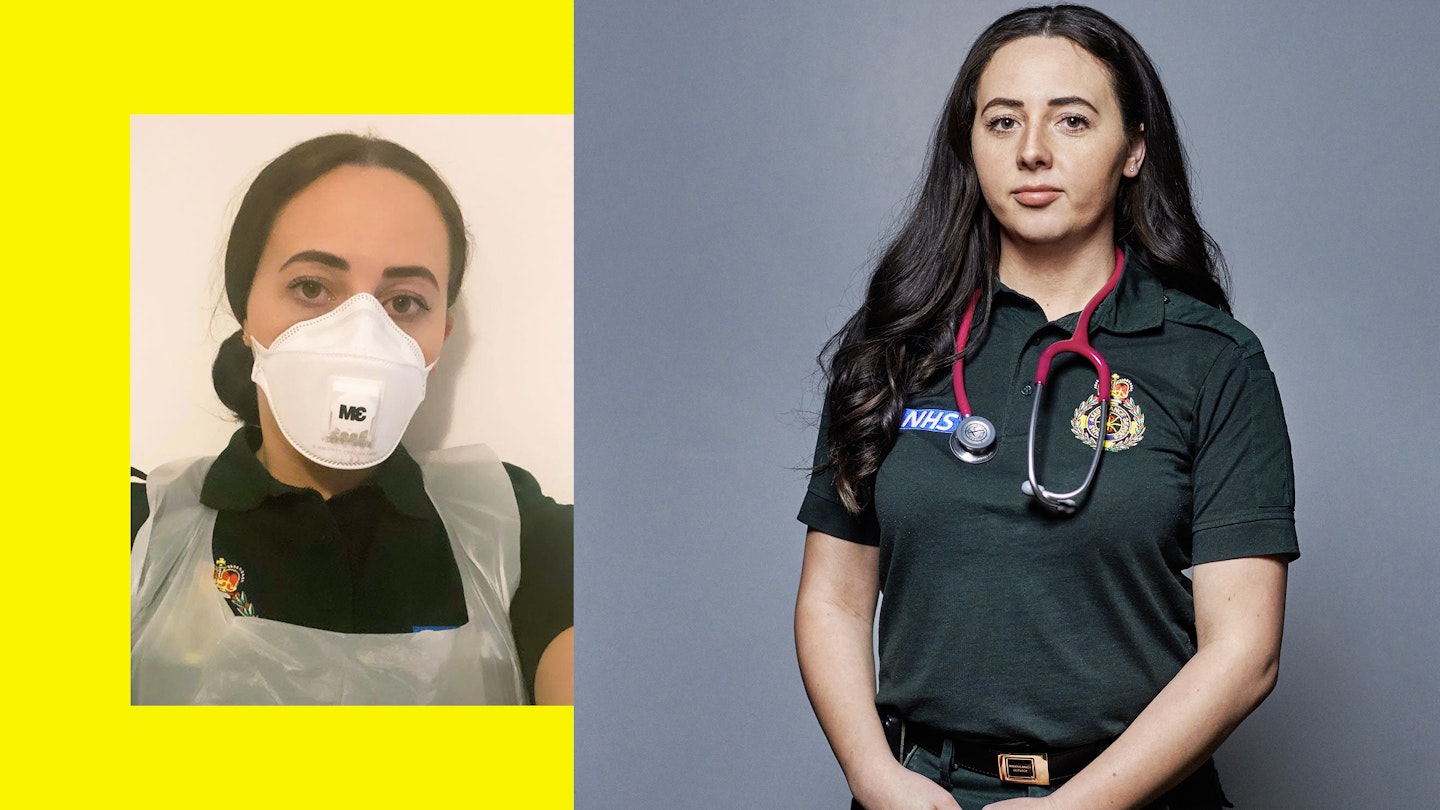
I couldn’t sleep last night. My last call of the evening was a 43-year-old woman who, three days earlier, had been healthy. After having a cold and a temperature for a few days, she collapsed. Her husband called 999 but, by the time we ran in, her heart had stopped and she had died. I can’t stop thinking about her poor 13-year-old daughter, and how shocked her husband looked when we told him. I worry this might be about to become the new normal.
A crucial part of my job is to calm and reassure the terrified people whose lives we are trying to save. As we speed to the hospital in the back of an ambulance, I hold their hands during what is one of the most frightening times in their lives. What I can’t bear about treating those infected with Covid-19 is having to keep my distance as their panic-stricken eyes search my face for signs of what’s to come. The truth is, I don’t know. Nobody does. Some of the patients I have taken to hospital have got better, some of them have not.
Seeing the loneliness this disease is causing is almost as heart-breaking as watching a person struggle for air.
Seeing the loneliness this disease is causing is almost as heart-breaking as watching a person struggle for air. Carers aren’t sending people out to visit the elderly for a friendly cup of tea now, and family have to stay away. A lot of older people are calling 999, worried they can’t breathe, and when we get there, they’re alone and terrified to leave the house – sometimes they have symptoms and sometimes they don’t.
I’m happy with the Government rules on social distancing, as long as people follow them. It’s crucial everyone understands they will put us at risk if they don’t. I’ve accepted it’s not possible to test us all for coronavirus. I don’t need to know if I’ve had it – I just need to know I can trust you to stay at home.
READ MORE:
Good News Worth Sharing: More Than 500,000 People Have Volunteered To Help The NHS Fight Coronavirus
Coronavirus: How to Look After Your Mental Health During Lockdown
